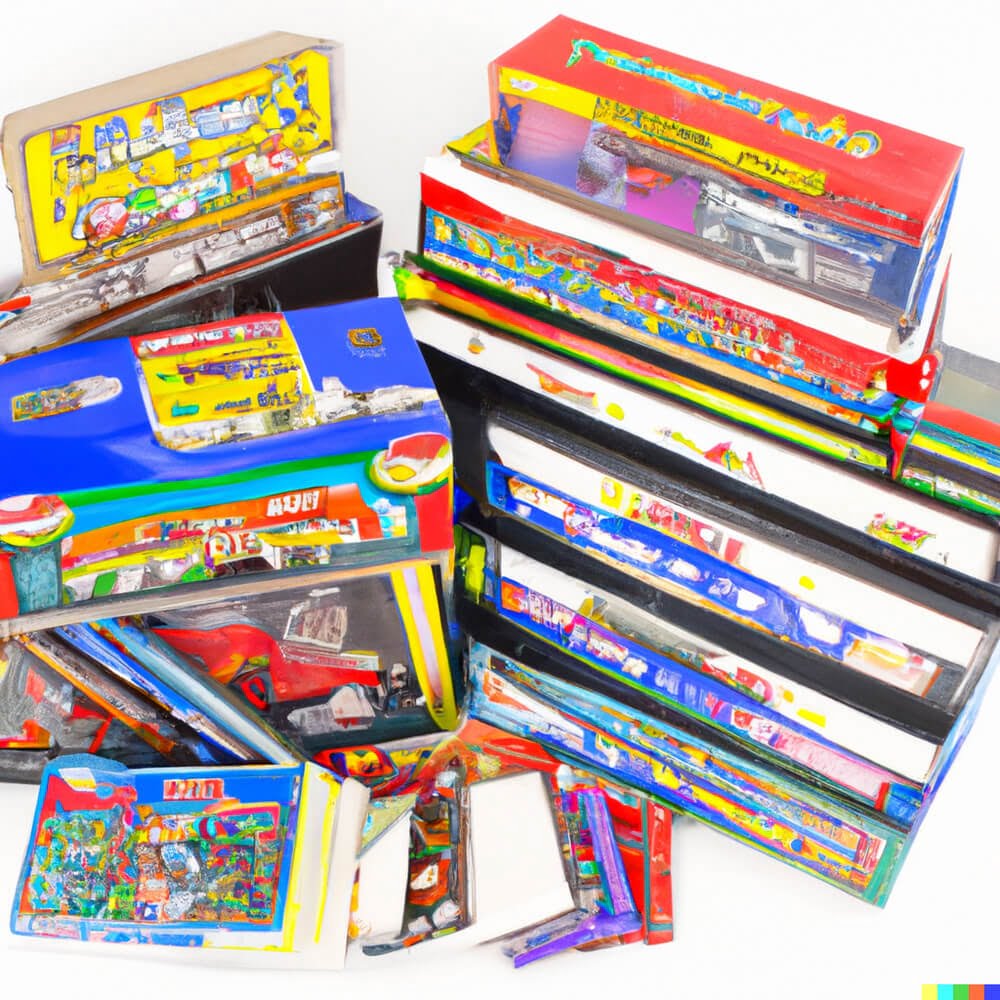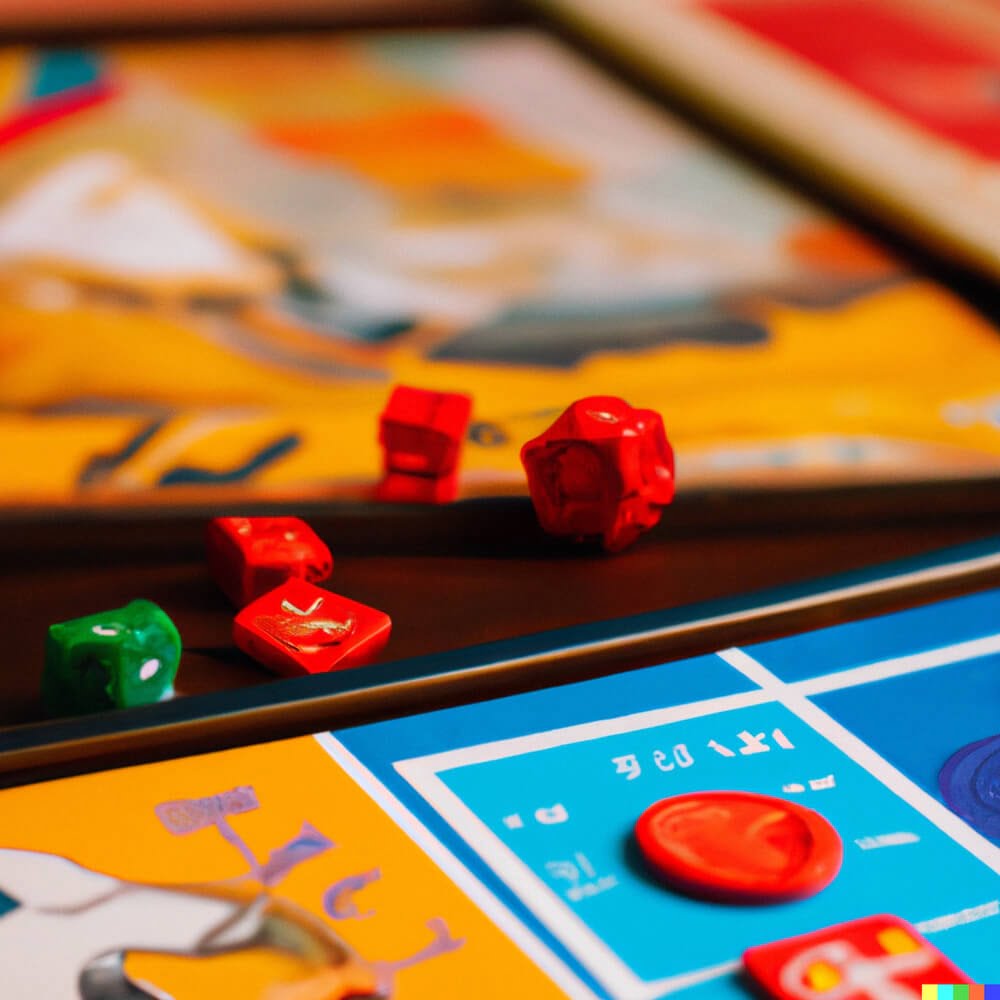Introduction
For many people, board game design is an exciting and fulfilling career opportunity. Board game designers create worlds inside a box that can amuse, entertain, and educate players of all ages. Whether you are an artist or engineer, a storyteller or strategist, becoming a board game designer provides the chance to bring your ideas to life in new and innovative ways.
Not only does designing board games give creators freedom to explore their imaginations but it also offers several tangible rewards. Working as a board game designer can be financially rewarding and help create professional connections in the entertainment industry. Not only will it provide the opportunity to work with colleagues on innovative projects but it also offers great prospects for future career growth. Building relationships with professionals who are experienced at the forefront of digital and analog gaming can greatly increase the job potential for individuals interested in developing video games later on.
Aspiring board game designers will also find plenty of support from within the industry. From events such as conventions that bring together developers from around the world to online platforms such as Reddit or BoardGameGeek where aspiring designers can connect with veterans for advice, potential competitors of any age can enter into this vibrant field with truly inspirational results.
Experience and Skills Required to Become a Board Game Designer
In order to become a board game designer, you need to have certain skills and experience. Firstly, you should have a broad knowledge of the gaming culture, including trends and popular games. This will give you a good foundation for developing your own ideas for board games. It’s also important that the aspiring designer has good communication skills in order to effectively collaborate with other team members and get feedback from potential customers. Having a solid understanding of game theory and mechanics is also essential, as this helps designers understand how pieces or players interact with each other during play. Lastly, it’s also important to have basic knowledge of computer software such as Adobe Creative Cloud tools, programming languages such as HTML 5, C++ or Java in order to create more intricate digital components for the game. These software and coding skills can also be used when creating companion apps for the game if desired by the customer. All these qualities will help position an aspiring designer very well when applying for future job opportunities in design departments at different companies.
Organizing and Showcasing Your Design Skills
An important part of getting a job as a board game designer is to ensure that you have a portfolio that shows off your skills. It should be organized in a way that highlights each game and any other projects you’ve done individually. Your portfolio should also include any awards or honorable mentions you’ve received, if applicable. As well as showcasing your talent and previous works, potential employers will want to see that you have the ability to communicate ideas, collaborate with others constructively, and understand how to research and develop new products. Having these skills presented in your portfolio will demonstrate the experience and qualifications necessary for the role, meaning it’s essential to showcase all aspects of yourself professionally.
Alongside this, it’s important to network with people in the industry who can offer their professional insights into board game design. Attempting to contact companies directly can create opportunities for you and provide useful contacts too”and don’t forget about searching online for available job boards or relevant forums where career advice is shared regularly! Finally, having an impressive collection of 3D models or concept sketches of your prototype designs could give some employers the added confidence they need when looking at applicants”so make sure you compile this information early on so you’re always prepared when asked by potential employers during interviews.
Intellectual Property Law Awareness in Board Game Development
Board game designers must have knowledge and awareness of intellectual property law in order to be successful. This is because when developing a board game, designers will need to be aware of any existing patent laws as well as copyright law, trademarks, and other forms of intellectual property that could affect their design. For example, any artwork used in the game or the components used in it must not violate another company’s copyrights or patents. Additionally, when trying to come up with new ideas for games or features, designers should always be aware of patent restrictions in order to ensure that the final product is legally protectable under a current patent law. This involves extensive research into active patents as well as international and national laws surrounding allowable subject matter such as board games, games pieces designs and creative content that are prohibited by third-party owners. Being informed on these areas of legislation also helps to ensure that the original designs won’t be violating any existing patent rights within a certain region or territory allowing for more protection from potential infringement lawsuits. In addition to researching current laws, designers should document all details regarding any novel elements added to their game design so legal action may be taken should someone infringe upon those rights. Knowing intellectual property law can benefit a board game designer not only with pertaining to their own game but it can prove beneficial when considering others titles on which they may choose to collaborate. Overall having strong awareness and knowledge of intellectual property law can make all the difference when designing safe, innovative ideas in an ever-changing industry.
Sources for Locating Job Openings
When looking for job opportunities in board game design, there are several resources available for you to use. The most common sources for finding specific board game designer jobs include:
1. Job Boards: Many dedicated websites list job postings from employers that have openings in the field of board game design. These job postings often contain information on qualifications, experience required, and where applications can be sent.
2. Professional Networking Sites: Sites such as LinkedIn, Indeed, Monster etc. provide helpful profiles of people working in the industry who can give details on open positions or possibly even help create an introduction with a company looking for a new designer.
3. Industry Conferences and Events: As a board game designer it is important to attend these events and conferences where employers may be recruiting new talent or offering internships. Not only will this give potential designers the opportunity to network but it may also introduce prospective employers to candidates that otherwise may not have been seen by them through job postings or networking sites alone.
4. Social Sites: Facebook, Twitter, Instagram etc., are becoming increasingly popular platforms for netwoorking with professionals within the gaming industry as users are able to make introductions and showcase their skills in this format making themselves more visible and accessible to potential employers.
Connecting With Professionals in the Board Game Industry
One of the best ways to gain insight into the board game industry and get a job as a board game designer is to network with experienced professionals. There are numerous businesses, associations, and groups that you can join to become more knowledgeable about the industry and build relationships with people who work in it. Participating in industry events such as conventions, seminars, or webinars can also be extremely beneficial for job seekers because these events provide an opportunity to talk directly with those who design and produce games. It is important to remember that networking with established professionals requires patience; developing strong relationships may take time but they are worth the effort. Additionally, researching companies online or attending trade shows and talking with publishers is also a good way to connect with potential employers. Demonstrating your interest in the board game industry through internships or freelance projects can help you stand out from other applicants when applying for jobs.
Strategies for Optimizing You Chances of Hiring
Having the skills needed to design a successful board game is essential in order to be hired as a board game designer. Knowledge and experience of traditional, electronic and hybrid games are incredibly helpful when looking for an apprenticeship or job. Immersing yourself into the world of board games and participating in events, conferences and meetups can help to build up your knowledge and reception important feedback for potential ideas you’re working on.
Broaden networking opportunities with colleagues, aspiring designers, developers, publishers, retailers – anyone involved in gaming culture. Reaching out online or face-to-face if possible can open doors as it builds relationships between yourself and people who may eventually offer you jobs or be able to spread the word about you.
Networking is also important when considering showcasing your portfolio (of physical samples of board games) ” it’s worth spending time bringing together a diverse range of playable prototypes to show off your work. Whether it’s through trade shows such as Gen Con or PAX Unplugged, other types of industry gatherings, publication techniques such as YouTube videos or social media content like Kickstarter pages, present this as part of what makes you stand out in recruiting processes whilst introducing potential customers with sample works they will actually buy into.
Other possibilities also include entering competitions that require designers throughout the industry where you have chance to win awards ” this is another great way to gain recognition and show employers the type of talent that you possess making this route ideal for aspiring creatives starting out with little or no experience under their belt yet still demonstrate skill set quality that employers are looking for when hiring game designers. Finally don’t forget to always stay humble – an intangible attribute included in most employer’s needs list which highlight soft skills including loyalty, trustworthiness and general attitude towards duties taken on.
Summary
Working as a board game designer is an exciting, creative and highly rewarding career path. Whether you’re interested in creating a card game, war game or role-playing game, there are many advantages to pursuing this job.
One of the primary benefits is that it allows you to use your imagination to craft and develop stories, characters, environments and gameplay mechanics that create an immersive experience for players of all ages. You’ll also be able to apply your design skills while working with other professionals such as software developers and artwork designers who bring these creations to life. Additionally, there is the potential to bring long-term success and recognition to yourself if your product captures the imaginations of consumers globally.
Not only do board games provide people with hours of entertainment but they often spark conversations centered around strategy, storytelling and problem-solving in a fun setting. As a designer it’s also important to remember that every customer reacts differently; therefore having the ability to tailor experiences based on feedback from demographic surveys is key when creating lasting relationships with consumers. As such, it’s essential for any aspiring board game designer to have strong research capabilities as well as staying up-to-date with consumer trends so their designs remain appealing over time.
In order for someone to land a successful job position as a board game designer, they need various skills related to writing, communication and marketing expertise too along with staying current with digitization processes and software technologies used throughout development cycles. Lastly networking plays a huge part in advancing ones career prospects within this profession due to developing relationships between independent designers, large companies and publishers which can help generate greater awareness around their work

I love playing all kinds of games – from classics like Monopoly to modern favourites like Ticket to Ride.
I created this blog as a way to share my love of board games with others, and provide information on the latest releases and news in the industry.




